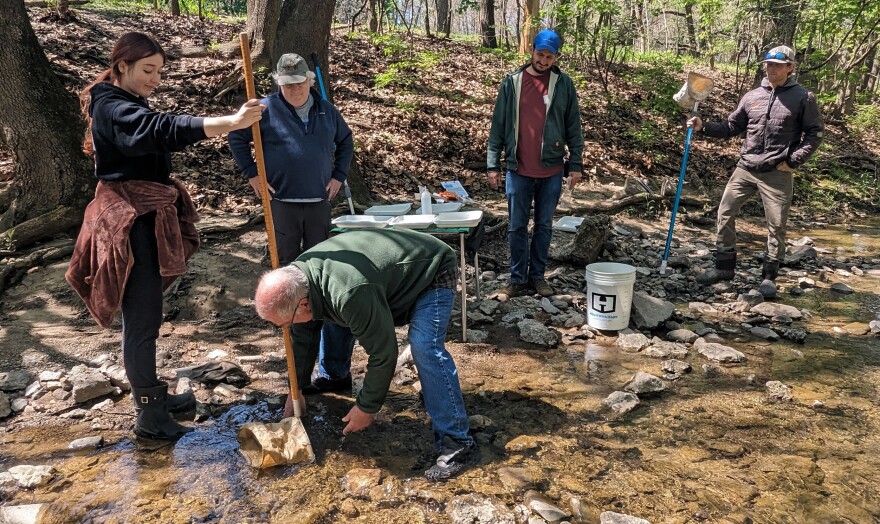Illinois residents can learn more about the health of their local rivers and gather data for science this spring at water quality monitoring training workshops.
Illinois RiverWatch is a statewide community science program. It began in 1995, and it's been training volunteers to monitor water quality since then.
The trainings are open to all ages, including kids with an accompanying adult. Volunteers don't need any experience to participate. They learn everything they need to know over the course of one all-day training.
Volunteer coordinator Hannah Griffis says collecting this data can indicate whether the river may be polluted. They calculate what's called a macroinvertebrate biotic index.
"To get basically an average of how well the macroinvertebrates we found survive in pollution," she said, "and then based on that number, we can get an idea of — we're seeing a lot of macroinvertebrates that are really good at surviving in pollution, and not so many that can't handle it. And so that means we're probably looking at a stream that's having some sort of water quality issue."
Griffis describes macroinvertebrates as water bugs that can be seen with the naked eye.
"And volunteers do not have to have any experience beforehand," she said. "Going into these training workshops, we give them all the tools they need to be able to identify these things at the training workshop, so don't feel too pressured by the idea of learning identification."
Volunteers then get to out to a local river to practice field methods for collecting data.
Work like this has an impact on both researchers and volunteers. While volunteers gain a better understanding of their local waterways, they're also gathering data across Illinois, where researchers only have enough resources to monitor about 15 percent of the state's rivers.
Data collected by volunteers is publicly available and can be used as a resource to measure water quality and potential sources of pollution throughout the state.
The trainings take place throughout April and May.

